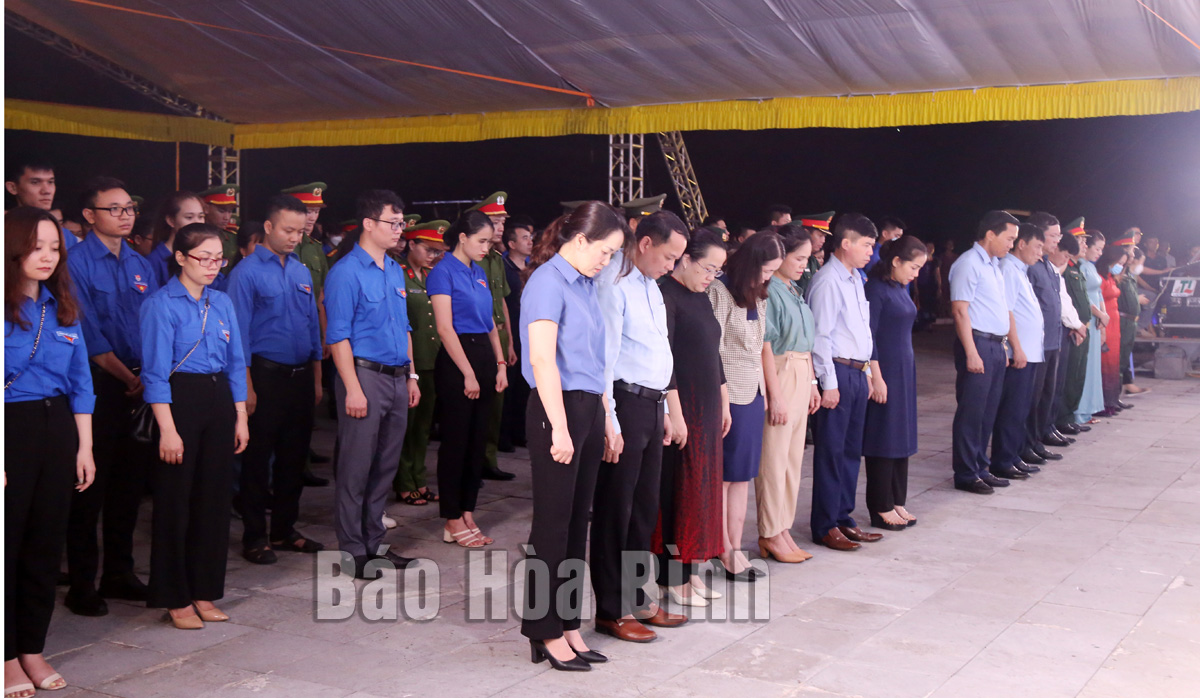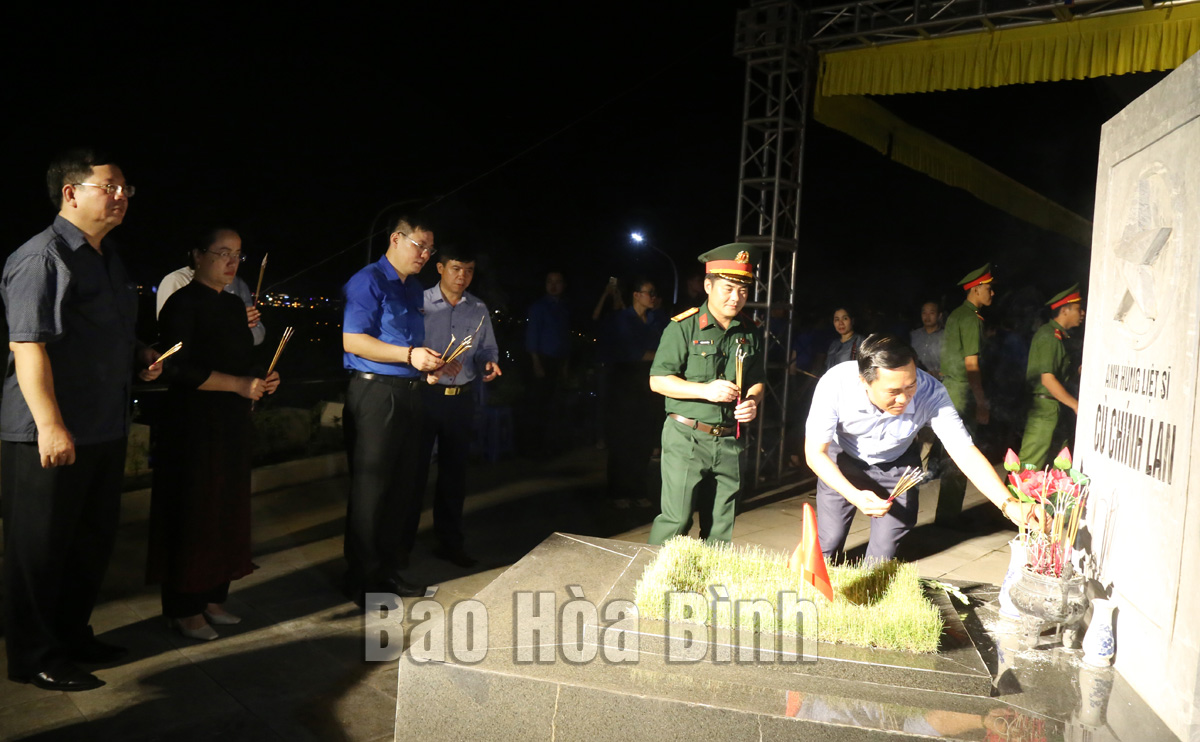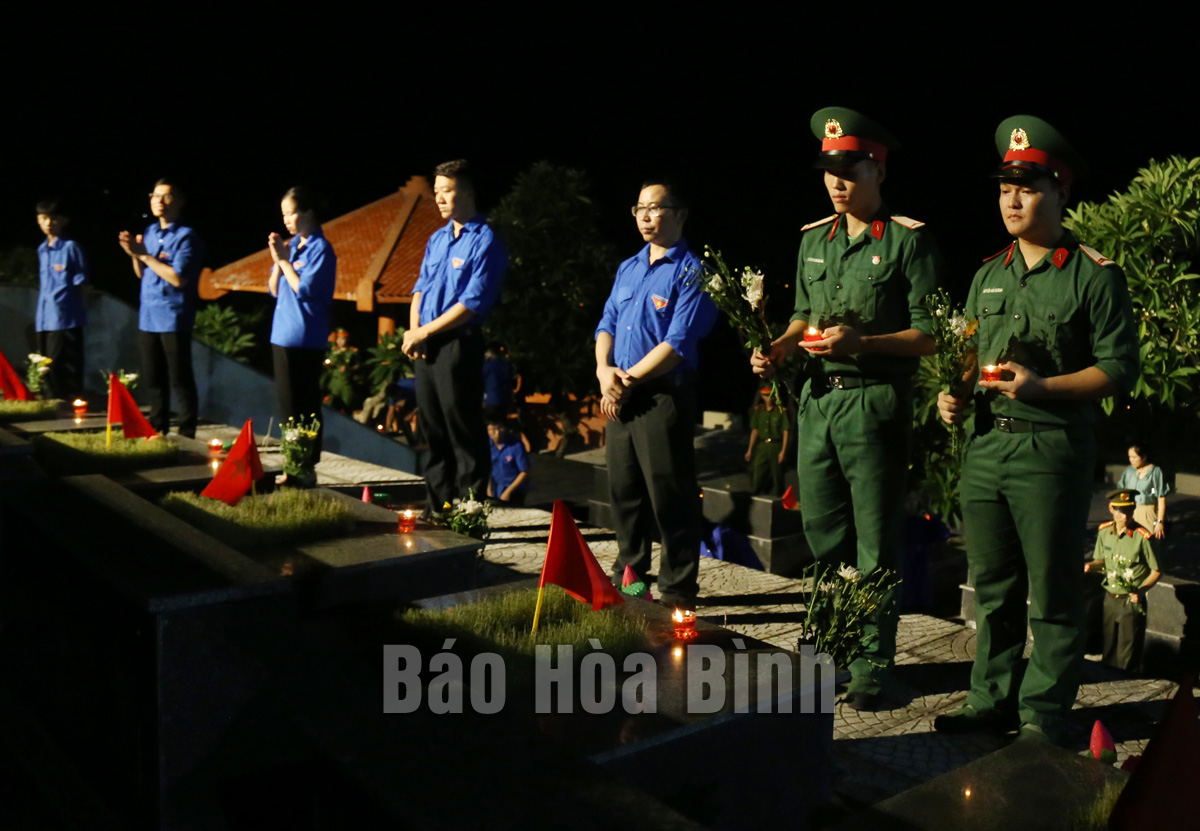
(HBO) – The Ho Chi Minh Communist Youth Union (HCYU) committees of Hoa Binh province and Hoa Binh city jointly held a ceremony on July 24 night to offer incense to fallen soldiers at the cemetery for martyrs who died during the Hoa Binh Campaign, on the occasion of the 75th War Invalids and Martyrs Day (July 27).
The event was attended by Vo Ngoc Kien, Vice Chairman of the provincial
People’s Council, as well as representatives from provincial departments and
agencies and more than 500 local HCYU members.
Delegates spend a minute of silence to commemorate martyrs.
Vo Ngoc Kien, Vice Chairman of the provincial People’s Council and leaders of local departments and sectors offer incense to martyrs.
Youth Union members light candles and offer flowers in tribute to martyrs.
Hoa Binh is home to more than 30,000 people who
rendered services to the nation, including 245 Heroic Vietnamese Mothers, and
more than 3,000 war invalids.
At the cemetery, where 306 martyrs were resting,
the delegates offered flowers and incense in tribute to the martyrs and
expressed gratitude to the heroes who sacrificed their lives for the national
liberation and protection.
On the occasion, with the motto of "when you
drink water, think of the source,” local young people and organisations,
departments, sectors and businesses have held a number of activities to care
for policy beneficiaries, including the building and upgrade of 120 houses for
national contributors, presenting gifts to families of war invalids, martyrs,
and Heroic Vietnamese Mothers. Local youngsters also donated hundreds of
working days to smarten up local war martyr cemeteries and tend martyrs’
graves.
After the ceremony, delegates lit candles and
offered flowers to each martyr's grave./.
Hoa Binh province is undergoing a dynamic transformation amid Vietnam’s national digital transition. Building on Poliburo’s Resolution No. 57-NQ/TW on breakthroughs in science, technology, innovation, and national digital transformation, the province has rolled out a wide range of practical action plans. A standout initiative is the "Digital Literacy for All” movement, an effort to ensure that no one is left behind in the digital era.
Hoa Binh province is undergoing a dynamic transformation in the wake of the national digital transformation movement. Building on Resolution No. 57-NQ/TW of the Politburo on breakthroughs in science, technology, innovation, and national digital transformation, the province has implemented a wide range of practical action plans. A standout initiative is the "Digital Literacy for All” movement ambitious effort to ensure that no one is left behind in the digital age.
With a spirit of unity and proactive problem-solving, the Party Committee, the government and the people of Dong Lai Commune (Tan Lac District) have made great strides in implementing the resolutions of the 24th Party Congress of the commune for the 2020 - 2025 term. Focusing on leadership and practical actions, the commune has brought the Party’s resolutions into daily life, creating strong impacts and pushing the local development forward.
Amid the nationwide push for digital transformation, young people in Hoa Binh Province are stepping up as dynamic pioneers, applying technology to enhance Youth Union operations and expand the reach of youth-led initiatives. Through creativity and adaptability, Youth Union organizations at all levels have introduced a series of practical solutions, contributing to modern governance and community development.
In recent years, An Nghia commune, located in Lac Son district, has stepped up administrative reform, focusing on improving the quality and efficiency of its single-window service unit for receiving and processing administrative procedures. These improvements have helped create favourable conditions for local residents and organisations to handle administrative procedures, contributing to the commune’s broader socio-economic development.
The Prime Minister-approved master plan to develop the multi-use value of forests ecosystems through 2030, with a vision to 2050, aims to improve the management and sustainable use of forest resources, create jobs, increase incomes, and improve the living standards of ethnic minorities, people in mountainous and remote areas, forest workers and those living near forests.





